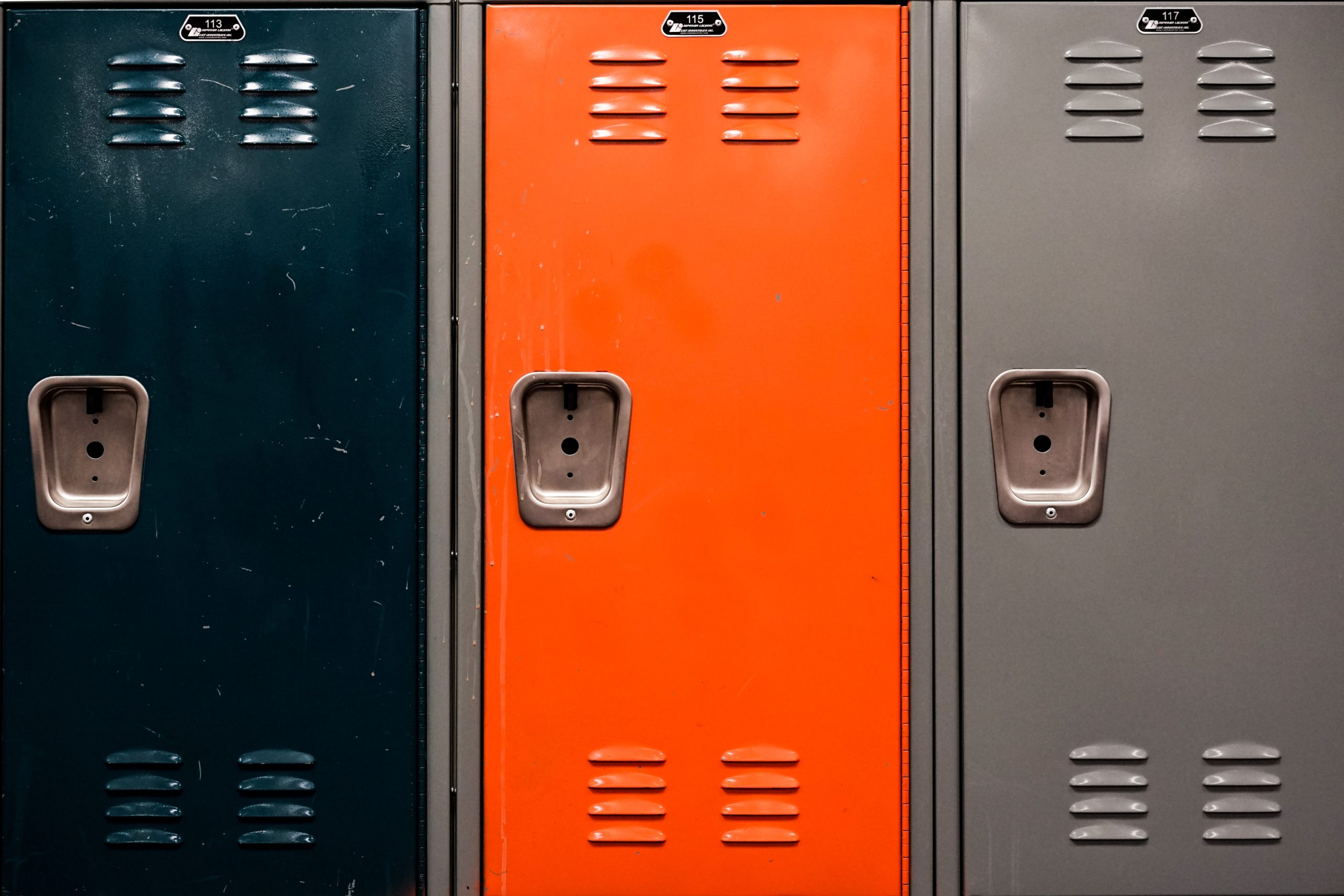Books & Culture
Why You Should Read “Home” While You’re Stuck at Home
Marilynne Robinson’s novel shows how changing the country starts with changing yourself and the people closest to you

If one thing will be irrevocably changed by the coronavirus pandemic, it is American’s sense of “home.” By the start of April, almost everyone in the country was under stay-at-home orders. Some estimates indicate that one in five Americans are currently unemployed. Primary and secondary schools are closed until next fall and colleges sent their students packing seemingly overnight. Still others are unable to go home at all, working essential jobs, stranded overseas, or split from their loved ones by brutal immigration restrictions that have only expanded under the pretense of the virus. Like never before, the pandemic has forced us to confront what it means to be home in America, and, ultimately, who in America is able to call this country home.
Coincidentally, the day my office announced its indefinite closure because of the pandemic, I opened a book I had long tried and failed to read: Marilynne Robinson’s Home, her third novel and the second in her soon-to-be-quartet based in the fictional town of Gilead, Iowa in the 1950s. This reticence wasn’t due to lack of zeal, as I love Robinson’s work, but because she is a writer who requires immense patience. Her prose is not difficult; in the Gilead sequence, in fact, it is exceedingly simple, almost crystalline. Yet, her language seems to unfold like the layers of a flower, revealing with a slow, measured grace its buried workings. If you don’t take the time to study it and dwell within it, its meaning escapes you, like a dream. And if I saw anything before me as quarantine began, it was––precariously so––time.
In one of the most beautiful passages of Homecoming, Robinson’s first novel, the narrator wonders, “[W]hy do our thoughts turn to some gesture of a hand, some corner of a room on a particular anonymous afternoon… What are all these fragments for, if not to be knit up finally?” Home moves like this, through intimate, almost mundane gestures whose meanings only bloom the longer the book is read, until they become heartbreaking, miraculous, glittering. It tells the story of Glory Boughton, who returns to Gilead to tend to her dying father, and the subsequent return of her brother Jack, who has been absent for some twenty years and now seeks to make peace with a haunted past.
Home is a narrative about family and religion, but, in the end, is also a meditation on racial injustice. As the coronavirus pandemic ravages all sense of normalcy and exposes the profound rifts in American society, Home came as a revelation, both a comfort and crucible for America’s hopes and hypocrisies. At a time when millions of people are living at home, there may be no better work of fiction to read. Even if it doesn’t mend you—in fact, it breaks you again and again—it might leave you with something else essential: faith.
At a time when millions of people are living at home, there may be no better work of fiction to read.
Home is an anti-pandemic book: whereas a pandemic is constantly expanding, totalizing, ravaging, Home is inflowing, domestic, sometimes nourishing. Glory and Jack Boughton are isolated members of a family in an isolated town in an isolated state. By this nature alone, Home feels serendipitous. Do we all really need to read The Plague or The Decameron right now? In fact, the Boughton’s lives are not totally unlike those of us under shelter-in-place orders: they read, drink coffee, cook, play music, garden, go on aimless drives. The novel’s insularity is something of a consolation, a reminder that all of life’s movements––joy and bitterness, rage and forgiveness––continue to pass even when very little happens.
But the solace of going home is not all Robinson is able to capture; more than anything, she evokes its defeat. Glory, the novel’s protagonist, is a 38-year-old former schoolteacher who has returned home not only because her father is ill but because her years-long engagement ended with her abandonment. “Did she choose to be there, in that house, in Gilead?” she wonders to herself. “No, she certainly did not. Her father needed looking after, and she had to be somewhere… What an embarrassment that was, being somewhere because there was nowhere else for you to be.” For Glory, who always tries “to make the best of things,” going home is a sort of a capitulation, a return from adult life to a simulacrum of childhood, as if all the years in between were just a dream. For those who have gone home because of the pandemic––especially those who have been forced to do so––the feeling might be familiar: what was all that work for, in between, if the world would just drag me back to where I began?
Wrapped up in this resignation is the more complicated disappointment that “home” might not provide the succor one envisioned it would. When the eight Boughton children are all uprooted and away at college, Robinson writes, they “studied the putative effects of deracination, which were angst and anomie, those dull horrors of the modern world.” And yet, whenever they visit Gilead, they ask themselves: “What kinder place could there be on earth, and why did it seem to them all like exile?” Inevitably, the idea of home has a way of supplanting itself––your memory of it comes to define it, and when you return, you find this conception does not align with reality. “The past was a very fine thing, in its place,” Glory thinks. As with the Greek concept of nostos, the home you go back to is not the same as the one you left. In fact, as Glory encounters the objects of her nostalgia––Gilead, her father, and, most of all, Jack––we begin to see that the past itself was never pristine.
Jack’s return, a sort of a prodigal son narrative, is the fulcrum upon which all of Robinson’s Gilead novels rest. A troubled child, he is a black sheep among his pious siblings and the apple and anguish of his father’s eye, a Presbyterian preacher who feels his son’s delinquency is his one sustained failing as Christian. As a boy, Jack vanishes and returns without a word, leaving only the knowledge that some crime or misdeed has been committed during his absence. The crux of Jack’s waywardness comes as a young man, when he seduces and abandons a young, poor girl. She has a child who Jack’s father tries to support, only to be spurned by her family, and the child subsequently dies of an infection. By then, Jack has disappeared into a twenty-year void of alcoholism and dereliction when his family hears nothing of him, even after his mother’s death.
The idea of home has a way of supplanting itself––your memory of it comes to define it.
A weary man in his forties, Jack has come home to reckon with this past, with his father, and in particular with the congregationalist preacher John Ames, the narrator of Gilead, who is his father’s best friend and distrusts Jack most of all. But it is Jack’s relationship with Glory, which buds from awkward tolerability to kinship and compassion, that propels Home. Indeed, many of the book’s lessons for those of us stuck at home, perhaps more enmeshed with family than ever before, can be drawn from the Robinson’s masterful tapestry of the intricate dynamics of family life.
At first, Jack’s sudden presence in the Boughton household vexes Glory. He quickly “resume[s] his place in his father’s heart,” a place Glory both resents and is relieved by. She discovers boundaries where there were none before: in entering Jack’s room, in asking about the last two decades of Jack’s life, and, primarily, in speaking about Jack’s illegitimate child. Privacy becomes a communal thing, as the house, despite once holding eight children, is small enough that no conversation really passes unheard. Home, far more so than Gilead or Housekeeping, hinges on dialogue, on the said and unsaid. Each conversation in the novel peels away yet another layer, reaching toward the unutterable heart of the matter.
These hidden truths forge Jack and Glory’s relationship. Jack learns of Glory’s failed engagement, and Glory learns through pieces––a mysterious phone call, letters Jack surreptitiously sends––that Jack is in love with a woman in St. Louis who does not or cannot love him back. But there are more than just the Boughton’s sins and failures at the nucleus of Home. Early on, Jack and Glory discuss W.E.B Du Bois and communism and Jack later gives her a copy of Engels’ The Condition of the Working Class in England. After Jack purchases his father a television, they watch on the news as a black crowd is attacked by riot police. Jack’s father, until then the apparent moral conscience of the book, witnesses Jack’s distress at the footage and tells him “it is necessary to enforce the law… You can’t have people running around the streets like that.” Later, a similar conversation ensues while the two are discussing Emmett Till’s murder, and his father says, “The colored people… appear to me to be creating problems and obstacles for themselves with all this––commotion… They bring it on themselves.”
These conversations are short, strained, fleeting, yet manage to flip the moral schema of the book on its head. How can the sinning, faithless child now be the voice of justice, while the wise, pious father is an apologist for racial violence? Robinson refrains from didacticism. These discussions of race seem, for much of the book, to be minor gestures, historical framings, undertones that contribute to the book’s overall narrative of wrongdoing and forgiveness. But in the final pages of Home, these undertones seethe to the surface. Jack has left his father on his deathbed, finally defeated by, or at least resigned to, the truth that his past is irrevocable and his love for Della, the woman in St. Louis, is doomed. Yet, not long after he has left Gilead, Glory finds Della on her doorstep. She is a black woman, and Jack has had a son with her.
The real stakes of Home, we come to see, are not merely faith and family or sin and forgiveness, but hatred and hypocrisy.
Jack’s return, we realize, was not merely to confront his ghosts, but to see if Gilead, the only semblance of a home he ever had, might be willing to accept a relationship that the rest of the country rejects with blood and vitriol. Ulysses S. Grant had once called Iowa the “shining star of radicalism,” as Jack mockingly quotes, and much of the preceding Gilead explores the town’s history as a haven for runaway slaves on the underground railroad. And yet, Jack discovers in his father an apathy and disdain for black Americans that varies by only a few degrees from the racism captured on the news. The real stakes of Home, we come to see, are not merely faith and family or sin and forgiveness, but hatred and hypocrisy.
From the moment coronavirus entered the American consciousness, discourse about it was tainted by prejudice, beginning with rash and egregious fears of Asians and Asian Americans. And yet as cases began to appear, and then multiply, the topic of race was otherwise largely absent from conversations about the pandemic. Only now, as the virus has razed the country, with New York City itself registering more cases than any other country on earth, has the horrifying racial and socioeconomic toll become clear. The virus, spread largely by affluent people able to travel, has affected front line workers who cannot miss their jobs, families living in dense or concentrated homes and neighborhoods, and those without access to adequate health care. People of color have been inordinately affected by these factors: in New York City, the virus is twice as deadly for black and Latinx people as it is for white, a statistic that is proving consistent in major cities across the country, including Detroit, Chicago, and New Orleans. In Louisiana, despite making up a third of the state population, around 70 percent of those who have died from the virus are black, and in Illinois 43 percent of those who have died are black, though making up only 15 percent of the state. The coronavirus is also roiling jails and prisons, where inmates say they face little to no protections and remain forced to live in close quarters. On Rikers Island, where the majority of those jailed are people of color, at least 365 inmates and 783 correctional staff had tested positive as of April 20.
The novel operates as a sort of microcosm for the unmasking of American democracy.
The coronavirus has exposed, on a dramatic scale, the disparities in justice along racial and socioeconomic lines in America. How, then, can a novel as provincial and, frankly, as white as Home provide a lens to understand America’s ongoing, latent political and racial violence? In fact, the novel operates as a sort of microcosm for the unmasking of American democracy. The plot never feels overtly influenced by race––the characters are white for 99% of the book––and yet, in the end, the story becomes inexorably determined by it. Robinson’s brilliance is to show that when you chip away at the domestic novel, it too splits along the same fault lines as American society.
In the end, Home is not necessarily a salve for these wounds. Jack leaves, seemingly for good, before Della arrives; Della ventures into Gilead only for a moment, in constant trepidation of the risk she is taking by driving as a black woman in a white town; and Jack and Glory’s father lies delusional on his deathbed, never quite sure of the state of his son’s soul. And yet it is through Glory, the novel’s core, that we experience a glimmer of hope. As she contemplates Della and her son after their departure, she confronts the harsh truth that “they could not walk in [her] door. They had to hurry, to escape the dangers of nightfall.” In the world they live, the Boughton home can never be a home to Della. And yet, as she considers this, Glory envisions a future when the house is hers and she is “almost old.” In this future, Jack’s son has come back to see the barn, the lilacs, even the petunias his father once told him of. Glory will speak to him and invite him onto the porch, and though he will only stay for a short while, he will know this was his father’s house. It is a minor vision of a just future, but a future nonetheless in which Glory has transfigured her home into a place a black boy can call his own. To change one’s home, the novel suggests, is also to change America. Upon that hope Glory rests her faith.









